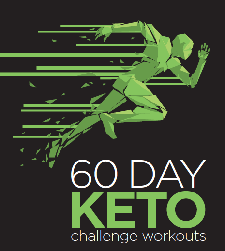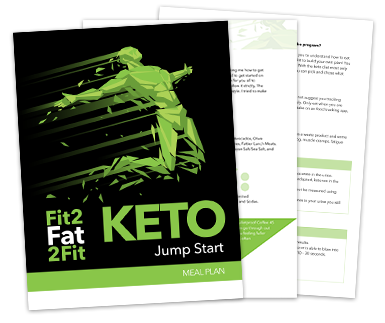The Keto diet has become more popular than ever before. Whether you are looking to reduce your weight or become more active, it is just the diet for you. It is a diet that involves the consumption of protein and fat and minimal carbohydrates. People struggling with diabetes or epilepsy can also start the diet to improve their quality of life.
Although you may have heard about the Keto diet, chances are that you do not know much about ketones. There are many ketone benefits that will help you understand their importance. When restricting carbohydrates, your body produces ketones as its primary fuel. It will have a positive impact on cognition and ensure that you are more productive. Continue reading to understand the incredible ketone benefits.
What Are Ketones?
Ketones are chemicals produced by your liver, and just about everyone has them. However, the amount of ketones a person has varies. These chemicals are created when your body does not have enough insulin to convert sugar into energy. In the absence of glucose, your body burns fat to produce energy. This fat is transformed into ketones by the liver. Ketones are released into your bloodstream and used as fuel by your muscles and other tissues.
For your body to produce ketones, it has to enter a ketogenic state. There are some changes you may experience during ketogenesis, such as fatigue, thirst, dry mouth, frequent urination, and a fruity breath. However, there is no need to worry as these symptoms will usually go away after a few days, and you will get to enjoy the benefits of ketones.
How do Ketones Reduce Brain Fog?
One of the ways ketones are beneficial is that they help reduce brain fog. When you follow the keto diet, you get to ensure a macronutrient balance for getting the desired response from your body. As you increase your fat and protein intake while reducing how much carbohydrates you consume, you will feel a lot more alert. When you reduce your carb intake, your body starts to use up fat to provide your brain with more energy. This process helps you achieve an unprecedented mental state that allows you to get more done.
The truth is that the Western diet is deficient in various areas, including essential fatty acids, which can be detrimental to your health and prevent the proper functioning of your brain. Studies show that ketones can help people who are suffering from neurodegenerative issues such as Parkinson’s disease, Alzheimer’s disease, and epilepsy. When the body produces ketones, it supports people who do not have enough glucose for handling perception and cognition. Therefore, ketones can serve as an alternative source of energy. By increasing your intake of fat, your brain will be able to perform better.
Studies prove that an increase in ketones improves cognitive performance and preserves brain functioning. In addition to this, the chemicals also improve memory and cognitive impairment. It is quite clear that ketones promote brain health and provide a cognitive advantage. Increasing fatty acids plays a considerable role in enhancing the functioning of your brain as our brain tissue relies on fatty acids. As you increase your intake of ketones, you will have an easier time learning.
How do Ketones Boost Energy Levels?

Another ketone benefit that you need to know is that it increases your energy levels. The reason why you will feel more energetic is that it will provide consistent energy so that you can get things done. Although you will feel somewhat tired when you start the Keto diet, you will feel more active after 4 to 5 days.
The energy that is produced by burning ketones tends to be a lot more consistent. It prevents energy spikes and crashes that are apparent when your metabolism runs on sugar. To help you better understand how an increase in ketones makes a difference, the energy you will feel would resemble one offered to a car on a driveway. You would get to carry on with your day without getting tired.
As you will be able to maintain your energy levels, you will feel a lot better and will have no trouble finishing tasks. Besides, you would not require any pick me up and will no longer tread an addictive cycle. Moreover, scientists acclaim that ketones keep your body relaxed. This ensures that you benefit from consistent energy. The chemicals cause a shift that decreases the amount of sleep you require by increasing slow-wave sleep.
How do Ketones Help Burn More Fat?
A typical Western diet is packed with sweeteners, carbohydrates, and trans fats. When you follow such a diet, you will crave more food due to the development of an insatiable appetite. This is why you would always want to eat more food, ultimately resulting in weight gain. On the other hand, a Keto diet eliminates carbs as much as possible and requires an intake of protein and fat. To increase your fat intake, you will have to consume healthy fats, which will boost the natural energy stores of your body and burn more fat in the process.
Unlike the standard American diet, which is rich in carbs, a Keto diet comprises mostly of fat and protein. Studies show that cutting down your carb intake can aid in weight loss. When your body can no longer rely on glucose, it starts to burn fat. This process results in your body becoming a fat-burning machine.
How to Increase Ketone Levels?
Now that you know ketone benefits, you must be wondering how you can increase your ketone levels. Here are some tips that will prove helpful.
1. Reduce Carbohydrate Intake
One of the best ways to add to your ketone levels is by reducing carbohydrate intake. In order to cut down your carb intake, pay attention to food labels and always double-check the nutrition information if you are unsure. It is vital that you consume between 20 to 30 grams of carbs a day and not more.
Some of the most common low-carb foods you should keep in your house are green vegetables, oily fish, avocados, oils, nuts, eggs, cheese, and fatty meat. Since you will be increasing your fat intake, you will have to ensure that you eat plenty of veggies. Fill your plate with low-carb vegetables to get sufficient fiber. Moreover, you must make sure that you get enough water and consume more electrolytes than usual, like magnesium, potassium, and sodium.

2. Fasting
Another great way to increase your ketone levels is by fasting. Scientists have found that fasting can quickly increase the production of ketones. Although the keto diet is known for increasing ketones, you can take things to the next level by fasting. It will speed things up so that you feel much healthier.
To practice intermittent fasting, you must eat within an 8-hour window and try to avoid eating anything for the remaining 16 hours. It will ensure that your body transitions into ketosis. The fact is that our ancestors have relied on fasting to survive in times of starvation. Fortunately, science is helping us realize just how important it is to practice intermittent fasting. Besides, the Keto diet itself acts as an appetite suppressant. It helps keep you full by providing positive changes to your hunger hormones such as ghrelin and leptin.
3. Increased Physical Activity
A great way to increase your ketone levels is by exercising more. Studies show that the more you exercise, the more carbohydrates your body will burn. It is a win-win situation. So, work out often to maximize your results. In addition, you can pair physical activity with intermittent fasting to amplify the ketone levels.

4. Supplementation (BHB & MCT)
Lastly, you can turn to supplementation such as BHBs and MCTs to help increase ketone production in your body. If you’ve ever struggled to get into ketosis, give them a try, you will be amazed by just how effective supplements can be.
If you’re ready to see how the keto diet can turn you into a fat-burning machine. Join my Back2Fit program, where I teach you everything you need to know and give you all the resources you will need. Recipes, shopping lists, daily workouts, motivation, education, and so much more! Get started today!



